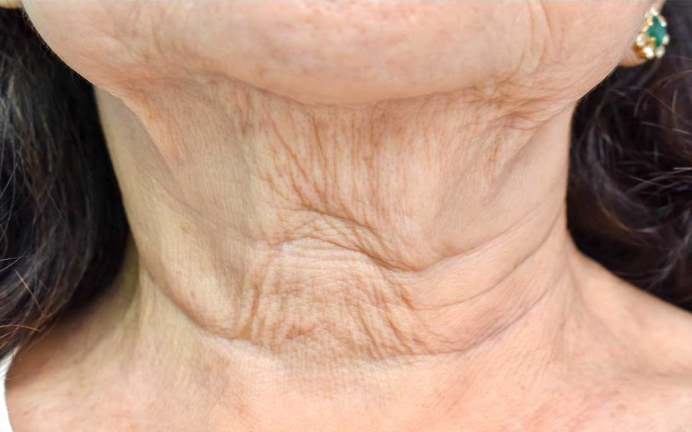Keeping your skin looking youthful and radiant isn’t just about using the right creams and serums—it starts from within. One of the most essential vitamins for maintaining skin elasticity and preventing wrinkles is Vitamin C. This powerhouse nutrient plays a critical role in collagen production, fights free radicals, and keeps your skin firm and glowing. But if you’re not getting enough, your skin could suffer, leading to sagging, dullness, and premature aging.
Why Vitamin C is Essential for Your Skin

Vitamin C, also known as ascorbic acid, is a potent antioxidant that protects the skin from oxidative stress caused by pollution, UV rays, and other environmental aggressors. But its most important role? Boosting collagen production.
Collagen is the structural protein that keeps your skin plump, firm, and elastic. As you age, your body naturally produces less collagen, leading to fine lines, wrinkles, and sagging skin. Vitamin C stimulates collagen synthesis, helping your skin maintain its youthful bounce. Without it, your skin loses strength and resilience, making wrinkles more prominent.
What Happens When You Don’t Get Enough Vitamin C?
If your diet lacks vitamin C, your skin will start to show visible signs of aging much faster. Some of the major effects of Vitamin C deficiency on your skin include:
- Loss of elasticity: Without enough collagen, your skin becomes loose and saggy.
- Increased wrinkles and fine lines: A lack of vitamin C means less collagen, making wrinkles appear deeper and more noticeable.
- Dull and uneven skin tone: Vitamin C brightens the complexion by reducing hyperpigmentation and evening out skin tone.
- Slower wound healing: Your skin struggles to repair itself, leading to prolonged irritation and damage.
- Weakened skin barrier: A lack of vitamin C reduces your skin’s ability to fight against external aggressors like UV rays, pollution, and toxins.
Best Dietary Sources of Vitamin C
The good news? Vitamin C is widely available in natural foods, and incorporating more of it into your diet is easier than you think. Some of the best vitamin C-rich foods include:
- Citrus fruits – Oranges, lemons, grapefruits, and limes
- Berries – Strawberries, blueberries, raspberries, and blackberries
- Tropical fruits – Kiwi, papaya, mango, and pineapple
- Vegetables – Bell peppers, broccoli, Brussels sprouts, and spinach
- Tomatoes and potatoes – Often overlooked but great sources of vitamin C
Aim to include at least 1–2 servings of these foods daily to ensure your skin gets the nourishment it needs.
The Power of Topical Vitamin C in Skincare
In addition to eating a vitamin C-rich diet, topical application can provide direct benefits to your skin. Vitamin C serums and creams help fight signs of aging by:
- Reducing fine lines and wrinkles
- Brightening the complexion
- Fading dark spots and hyperpigmentation
- Boosting collagen for firmer skin
- Protecting against sun damage and free radicals
For the best results, look for stable forms of Vitamin C in skincare, such as ascorbic acid, sodium ascorbyl phosphate, or magnesium ascorbyl phosphate. Apply a few drops of a high-quality Vitamin C serum every morning before your moisturizer and sunscreen.
How Much Vitamin C Do You Need?

The recommended daily intake of Vitamin C varies based on age and lifestyle factors:
- Adult women: 75 mg per day
- Adult men: 90 mg per day
- Smokers: Need an extra 35 mg per day due to increased oxidative stress
- Pregnant/Breastfeeding women: May require higher amounts
While most people can get enough Vitamin C through food, supplements can help if you’re not getting enough through diet alone. Look for high-quality ascorbic acid supplements or natural vitamin C sources like acerola cherry or camu camu powder.
Signs You Might Be Vitamin C Deficient
If you’re not getting enough Vitamin C, your body will start showing clear signs of deficiency, including:
- Dry, rough, or scaly skin
- Slow wound healing
- Easy bruising
- Small red or purple spots on the skin
- Bleeding gums
- Fatigue and weakness
Severe deficiency can lead to scurvy, a condition that causes bleeding gums, joint pain, and skin issues. While scurvy is rare today, mild Vitamin C deficiency is more common than you think—and your skin is often the first place it shows.
How to Increase Your Vitamin C Intake for Healthier Skin
Want glowing, youthful skin? Follow these simple tips to boost your Vitamin C levels:
- Start your day with citrus – Drink fresh orange juice or add lemon to your water.
- Snack smart – Eat berries, kiwi, or bell peppers as a healthy snack.
- Add more greens – Spinach, kale, and Brussels sprouts are vitamin C powerhouses.
- Use Vitamin C skincare – A daily serum can work wonders for your complexion.
- Take a supplement – If needed, add a high-quality Vitamin C supplement to your routine.
Final Thoughts: Protect Your Skin with Vitamin C
If you want firm, glowing, youthful skin, Vitamin C is non-negotiable. From boosting collagen production to fighting wrinkles and brightening your complexion, this vitamin is one of the most powerful skincare allies you can have.
Make sure you’re getting enough through diet, skincare, or supplements, and watch your skin transform. Don’t let a Vitamin C deficiency rob you of your skin’s youthful glow—start nourishing your skin from within today!


